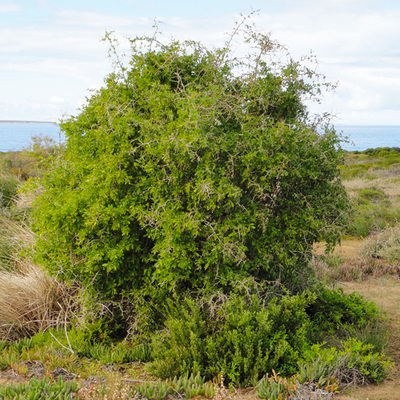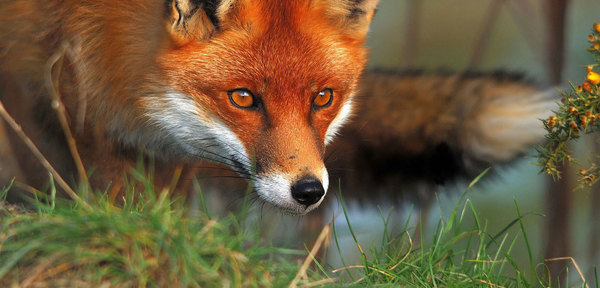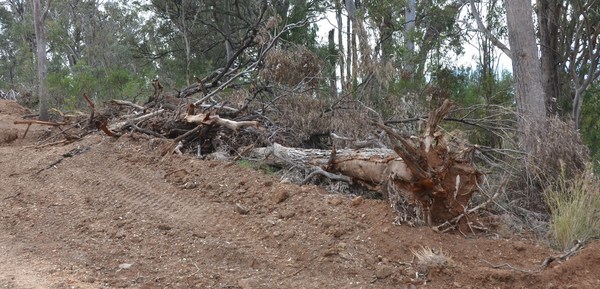By Jeremy Sollars
The Southern Downs Regional Council will make its controversial Invasive Pests Control Scheme (IPCS) a permanent measure until at least 2020, the council announced after its December general meeting last week in Warwick.
The scheme, which was introduced as part of the 2017-2018 budget, was to have been reviewed at the end of the current financial year.
But councillors have decided the $15.4 million scheme has been such a success that no review will be required, and landowners will need to submit annual pest control plans for at least the next three years.
Landowners who fail to comply with or complete their ‘control works forms’ for management of pest weeds and animals will be fined in the form of a supplementary rates notice.
But many farming and other landowners remain sceptical about the scheme, with some having previously labelled it a “money grab” and raised questions about the practical ability of the council to physically inspect all rural and commercial properties in the region to determine compliance.
A statement released last week by the council said councillors resolved to extend the scheme “based upon recommendations put forward by the Pest Management Advisory Committee following its last meeting in November”.
“The extension of the scheme was recommended to continue to align with the funding opportunities which have been received and anticipated,” the statement said.
Other reasons included the need to “provide certainty to all stakeholders that the scheme will continue until at least 14 June 2020 and assist with the backfilling of local laws positions to ensure adequate council resources are allocated to the scheme.
The council has conceded it has had “difficulty in filling these roles for short term employment” and is currently advertising for a Pest Management Local Laws Officer, a role carrying a salary of just under $60,000 a year.
The council would not bend to demands from the community that the scheme be introduced as a trial only in its first year, with no financial penalty on non-compliant landowners.
Last week’s statement said the IPCS “was approved by council at a Special Council Meeting in June, with the scope of the current policy being until 2018”.
“Since its implementation, the scheme has proved highly successful with close to a 50 per cent increase in baiting program participation and the return of native flora and fauna to the local environment,” the statement said.
“As of late November, a total of 5180 Control Works Forms were received by council from 5814 that were issued, a return rate of 89 per cent.
“A total of 1714 Control Works Forms have been assessed by the local laws team with 442 requests being received from landowners for council officers to inspect their properties.
“Council has garnered interest from other local governments about the initiative, many of them expressing interest in establishing similar schemes in their respective areas.
“The success of the scheme is being closely monitored by these councils as well as the Local Government Association Queensland (LGAQ) and the Department of Agriculture and Fisheries (DAF).
“Eligible property owners are able to receive a rebate on their rates if they meet the requirements of the Environmental Enhancement Rate Rebate Policy.
“Council will work closely with local landholders to continue to build upon the success of the scheme and its effective implementation, including the distribution of Control Work Forms to be completed annually.
“Council has officers experienced in the control of local invasive pests are available to provide advice to landowners on the most effective and economical control methods.
“Landowners with extensive infestations will be given adequate time for comprehensive and targeted treatment over several years, which works to reduce the impacts of pests on neighbouring landowners.”
Funding boost
A report to the December council meeting stated the Queensland Department of Agriculture and Fisheries (DAF) has approved $280,000 to employ an IPCS officer for three years.
The report said a “separate $285,000” worth of state funding for council pest management included a $90,000 component “that is being administered by the Queensland Murray-Darling Committee for education and support to local landowners, including running field days”, and the council has also submitted an expression of interest for $50,000 in funding from the State Government’s Land Protection Fund “for a project to analyse the social and economic benefit of the scheme”.
Scheme a boost for contractors
Toowoomba-based weed contractor John Smith – who is working extensively for landowners in the Warwick area – said his phone has been ringing off the hook with inquiries about his services since the introduction of the IPCS.
Mr Smith and his crews use rubber-tyred rather than tracked excavators for mobility among weed infestations on properties, with boxthorn the most common weed being removed by ‘rippers’ mounted on the front of the machines.
He told the Free Times this week that most landowners accepted they had a requirement to management pest species on their properties.
“There is a minority of people who feel that it should be up to the government to remove weeds if the weeds were already on the property when they bought it,” he said.
“We’re charging a per acre rate and it all depends on the density of the infestation – the cheapest job we’ve done was $30 an acre and the most dearest was $300 per acre.”
Mr Smith said he was mindful of contamination risks when moving his machinery from property to property and said that if his excavators are “travelling any distance down the highway” they remove any potentially contaminating material with air compressors or high-pressure gurneys.
But he pointed out that many weed species like boxthorn are spread by birds “who don’t normally carry competency tickets”.









